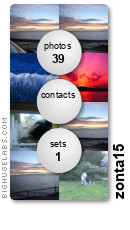 I love Wikis. It is wonderful that we can go to websites like these to read, write, change, edit, argue, learn, showcase our knowledge, share our expertise, or simply feel free to try something new and exciting. They are fast and working with them doesn't require a great deal of a technical expertise.
I love Wikis. It is wonderful that we can go to websites like these to read, write, change, edit, argue, learn, showcase our knowledge, share our expertise, or simply feel free to try something new and exciting. They are fast and working with them doesn't require a great deal of a technical expertise.I have been cruising through many Wikis and am impressed by their versatility and scope, and their varied applications in the library setting . Here are some of the ideas I like most:
- Open WorldCat - patrons annotating the catalogue, although this is purely an imaginary thought on my part.
- Library Instruction Wiki - using wiki to find handouts, tutorials, suggestions, instead of "re-inventing the wheel".
- Book Lovers Wiki by Princeton Public Library: combining Readers' Advisory activities with book reviews, open to volunteers, library staff, authors, in short - library community
- Library Outreach Wiki.
- Wiki in the workplace: how wikis can help manage knowledge in library reference services
- Subject guide wikis: with an excellent example of St. Joseph County Public Library's Subject Guide.
- DIY Wiki: you can choose your own wiki using wikimatrix
However, what works for Wiki, can work against it. The open, egalitarian nature of this tool makes it vulnerable, open to manipulation, missinformation, scams, "editorial wars". Wikipedia, the largest Wiki on the Internet, was a few times the subject of malicious satire, or a hoax. Teachers are cautious with recommending Wikipedia as a reliable resource to their students.
Jimmy Wales, the founder of Wikipedia, agrees with them, but adds that if someone finds an error in Wikipedia and advises the administrators it can be corrected immediately. The same cannot be done so quickly with any other encyclopedia. And no other encyclopedia would have such unlimited subject scope, freedom to publish ucensored opinions, and an expertise drawn from a vast, broad, passionate and deep readership.













No comments:
Post a Comment